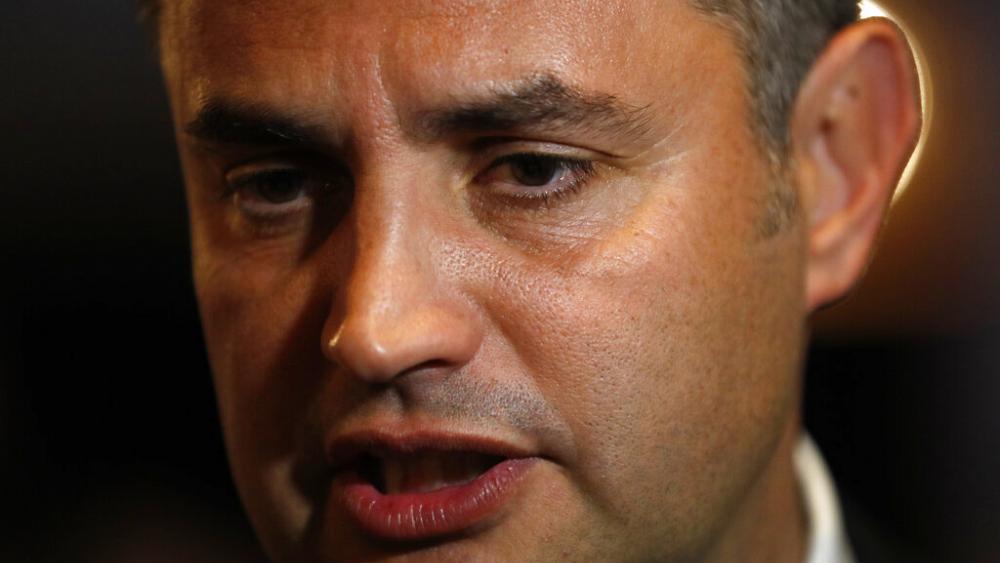
Péter Márki-Zay’s victory in Hungary’s first-ever opposition primary on Sunday is the second time that the engineer, historian, economist and relative political newcomer has confounded expectations.
Considered an outlier in the first round of the vote to decide which individual Hungary’s opposition would unite behind against Viktor Orban in next year’s parliamentary elections, Márki-Zay ended up seeing off Klára Dobrev and Gergely Karácsony, both considered far more likely to win.
Karácsony, a popular mayor of Budapest and favourite prior to the primary, withdrew from the race while Dobrev, considered a left-wing, pro-European option, was beaten in the second round.
Márki-Zay’s entry to politics was, for many, equally surprising. A father-of-seven who describes himself as a conservative, Márki-Zay won a mayoral election in 2018 in Hódmezővásárhely, his hometown, marking the first defeat for Fidesz by an opposition candidate in several years.
Back then, nobody really knew where to place Márki-Zay on the political spectrum, and he himself said he would struggle to support both the Hungarian left and the far-right Jobbik, which has since rebranded as a centrist force. Now both sides are expected to unite behind him to beat Viktor Orban.
There will be some in Hungary that will be relieved that it is not Dobrev, the vice-president of the European Parliament, that will face the nation. She has had an illustrious political career – but her husband, ex-PM Ferenc Gyurcsány, is one of the most divisive figures in Hungarian politics.
It is less clear why Karácsony withdrew, given that he had appeared the Hungarian opposition’s brightest star after his defeat of the Fidesz-supported mayor in Budapest, István Tarlós, reportedly a personal friend of Orban. A spokesperson for Karácsony did not respond to request for comment.
There is general optimism too simply because, for the first time in many years, an election is being held in Hungary that Viktor Orban may actually lose.
“The fact that there’s unpredictability in Hungarian politics is already a step in the right direction,” said Andreas Bock, an analyst at the European Council on Foreign Relations.
Who is Péter Márki-Zay?
Márki-Zay has said he is a Christian and a conservative, born to a religious family in Hódmezővásárhely. His mother is a chemist and his father a physics teacher.
He describes himself as a historian, economist, marketer and electrical engineer who lived in Canada and the United States, returning to his hometown after five years of work abroad.
He has been the mayor of Hódmezővásárhely since 2018.
More broadly, analysts describe Márki-Zay as a political outsider.
“In some ways, Péter Márki-Zay can be compared to Donald Trump: a non-party player who says new and surprising things, who comes out of nowhere and goes against the conventional political logic,” said Peter Kreko, executive director of Political Capital, a thinktank.
“He is also conservative and […] a candidate of the left. This is a phenomenon that can attract a lot of attention, and this attention can be converted – not automatically – but also into support.”
Márki-Zay’s conservative credentials could also see him take voters away from Fidesz in their traditional conservative rural heartlands. That, analysts say, has got Fidesz worried.
“To win an election in Hungary, you have to win the countryside,” Bock said.
But while there have been suggestions that Márki-Zay has a lot in common with Orban, on policy the men could not be more different. Márki-Zay is a believer in the European project and a defender of LGBT rights in Hungary at a time when the community is under wholesale attack by Fidesz. He is also committed to European climate change goals that have been opposed by Orban’s movement.
One issue on which Márki-Zay’s views are less well known, however, is migration, once against a political hot potato in the EU in the face of an influx of refugees into Poland and the Baltic states from Belarus, as well as from Afghanistan after the Taliban takeover. Bock expects that if migration is not yet an electoral issue, Fidesz will certainly be looking to make it one over the next six months.
Man without a movement
Despite having the support of the Hungarian opposition, Márki-Zay is a man without a movement – or at least a political party. He founded the Everyone’s Hungary Movement (MMM) to run mayoral candidates during the 2019 municipal elections but by its own admission, it has just 6,000 members.
He is running as a figurehead candidate for a coalition of six political parties, from environmentalist to social democrat to far right-turned centrist conservative. There has been speculation that Márki-Zay may now form his own political party, and run candidates throughout Hungary.
If he doesn’t, it is difficult to see who Márki-Zay will turn to on day two when he is building his cabinet: How many socialists? How many conservatives? How many greens?
All that will need to be worked out if Márki-Zay can confound expectations once again and unseat Orban after 11 years. In doing so, he faces a leader whose allies have taken control of the majority of Hungary’s media landscape over the last decade, making campaigning an uphill battle.
According to polls, the united opposition and Fidesz are neck and neck, but six months is a long time in politics and it remains to be seen if the opposition can retain its show of unity until election day. It faces a party and a leader that is unlikely to give up control of Hungary without a fight.
Every weekday, Uncovering Europe brings you a European story that goes beyond the headlines. Download the Euronews app to get a daily alert for this and other breaking news notifications. It’s available on Apple and Android devices.
 RSS Feed
RSS Feed















 October 20th, 2021
October 20th, 2021  Awake Goy
Awake Goy  Posted in
Posted in  Tags:
Tags: 













